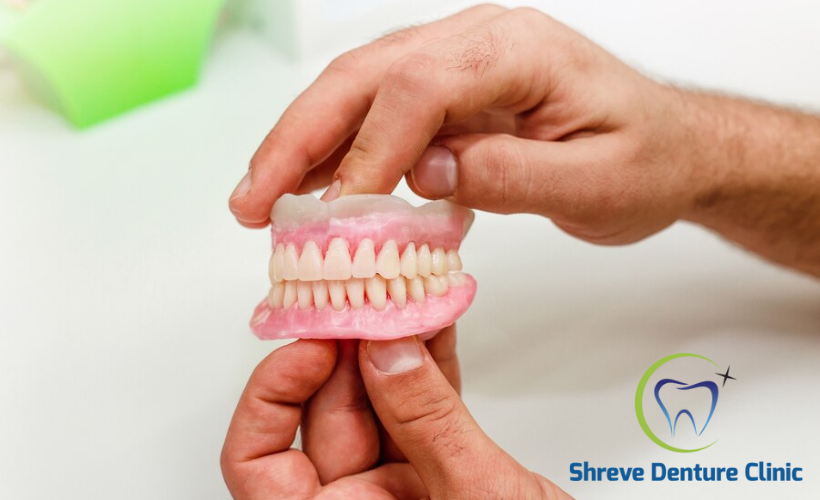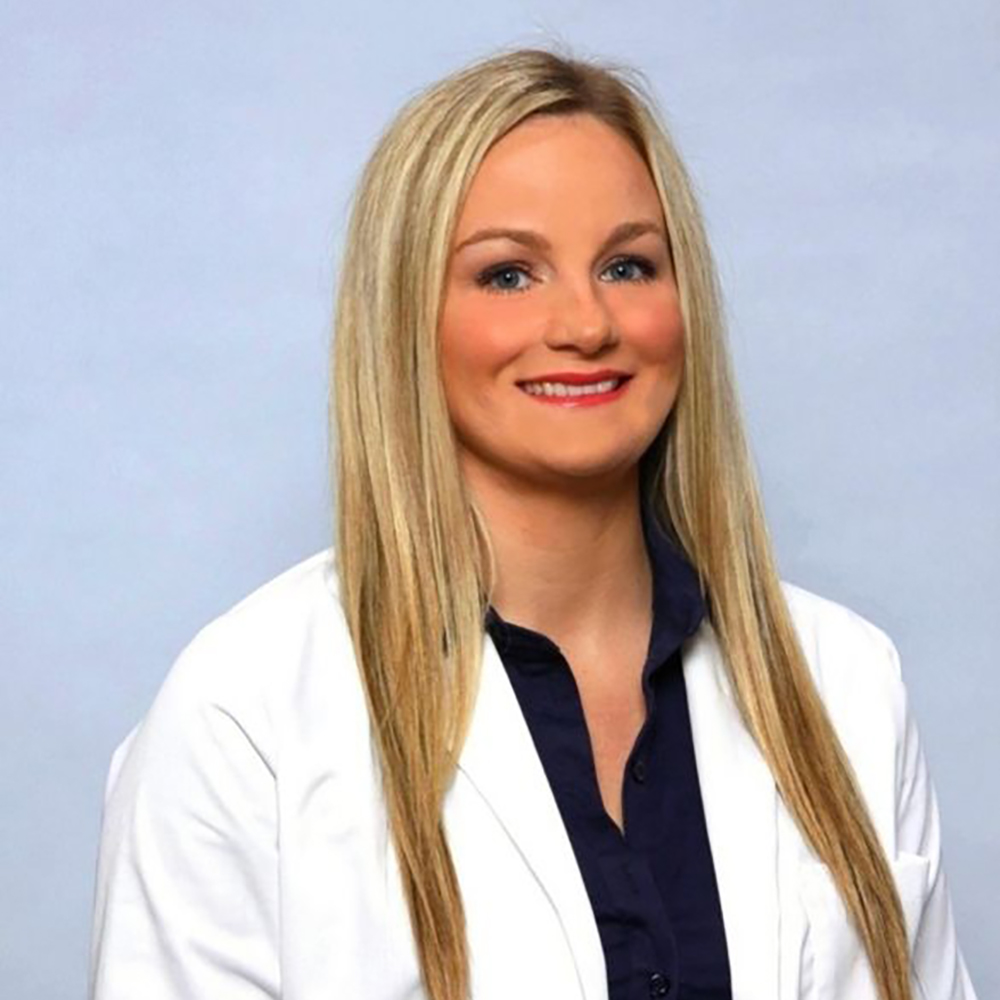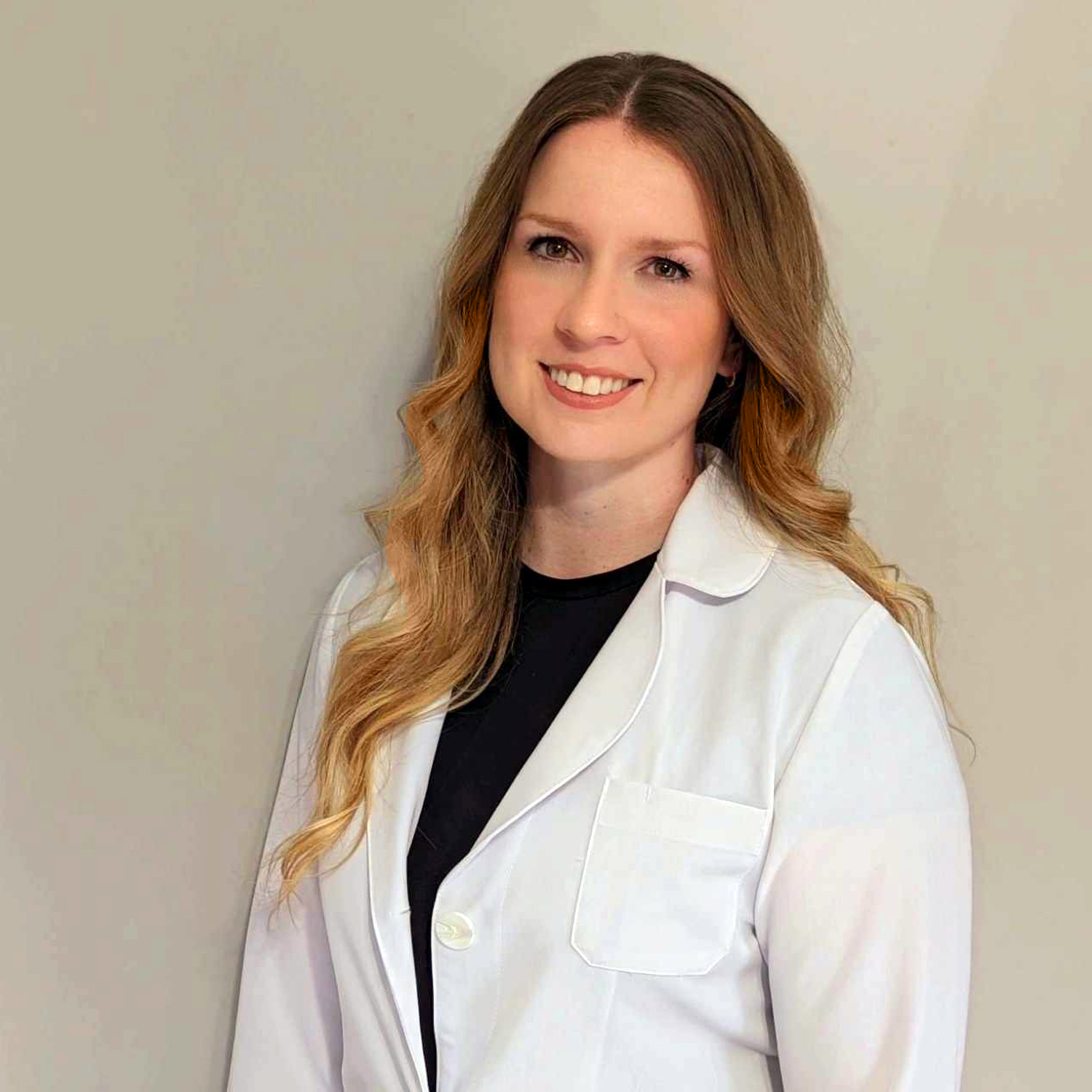Denture relines play a vital role in maintaining comfortable and properly fitting dentures. At Shreve Denture Clinic, we provide same-day denture reline services to ensure your dentures continue to fit well and function properly. Our experienced denturists can help determine if denture relines are needed during your regular check-ups.
This article explains what denture relines are, why they become necessary, the different types available, and how our experienced team can help you maintain your dental health and confidence with this essential service.
Understanding Denture Relines
A denture reline updates the base of your denture to match the current shape of your gums and jawbone. Your mouth changes shape over time, especially after tooth loss. When teeth are removed, the jawbone gradually shrinks. This natural process, called resorption, creates gaps between your dentures and gums. These gaps cause dentures to become loose, uncomfortable, and less effective for eating and speaking.
The reline process adds new material to the denture base. This material fills the spaces created by bone resorption and gum changes. A properly relined denture sits firmly against your gums. This proper fit prevents painful pressure points, improves stability, and helps you speak and eat with confidence. Your denturist at Shreve Denture Clinic can determine when relines are needed to maintain proper fit.
Why Denture Relines Become Necessary
Natural Bone Changes
Your jawbone needs regular stimulation from tooth roots to maintain its shape and density. When natural teeth are removed, this stimulation disappears. The body then begins to reabsorb the bone that previously supported the teeth. This bone resorption happens most rapidly during the first six months after tooth extraction but continues throughout life.
These changes in bone structure cause your once well-fitting dentures to become loose. Loose dentures shift while eating and speaking. This movement creates sore spots, affects your ability to chew properly, and can even change your facial appearance.
Weight Loss or Gain
Significant changes in body weight often affect how dentures fit. Weight loss can reduce the fatty tissue that helps support your dentures, creating additional space between the denture and your gums. Weight gain can change the shape of your face and jaw, also affecting denture fit.
These physical changes require adjustments to your dentures to maintain proper fit and function. Denture relines address these issues by reshaping the base to match your current oral anatomy.
Age and Wear on your Dentures
Denture materials wear down over time from daily use. The constant pressure of chewing, exposure to hot and cold foods, and cleaning products all affect denture materials. This wear changes how your dentures fit and function. Most dentures need relining every two years to compensate for both wear and natural mouth changes.
Regular relines extend the life of your dentures and help avoid the expense of complete replacements. At Shreve Denture Clinic, we offer same-day reline services to minimize disruption to your daily life.
Types of Denture Relines
Soft Relines
Soft relines use a pliable, rubber-like material to create a cushioned layer between your denture and gums. This material remains flexible for one to two years before needing replacement. Soft relines help patients with chronically sore gums, those recovering from dental surgery, or people with naturally thin gum tissue.
The soft material absorbs pressure during chewing, making dentures more comfortable for sensitive mouths. The procedure takes about an hour and provides immediate relief from denture discomfort. Many patients at Shreve Denture Clinic prefer soft relines for their superior comfort. Your denturist can determine if a soft reline is the right option for your specific needs.
Hard Relines
Hard relines use acrylic material that matches your original denture base. This creates a strong, durable surface that lasts longer than soft relines. Hard relines typically need replacement every two years as your mouth continues to change shape.
The procedure involves taking an impression of your current gum shape. This impression guides the addition of new acrylic material to your denture base. Hard relines provide excellent stability and durability for most denture wearers.
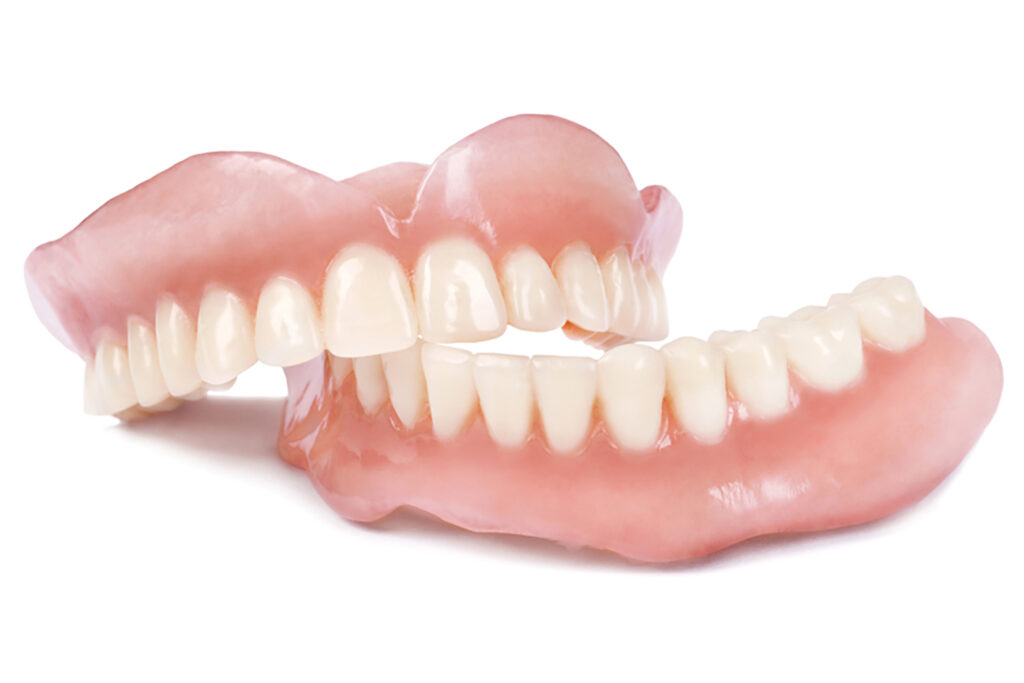
Temporary Relines
Temporary relines address severely irritated gum tissue that needs time to heal before a permanent reline. These relines use a medicated material that helps reduce inflammation while improving denture fit. They typically last a few weeks while your gums recover.
After the healing period, we replace the temporary material with a permanent soft or hard reline. This two-step approach ensures optimal comfort and fit for patients with significant gum irritation.
The Denture Reline Process at Shreve Denture Clinic
Initial Assessment
Our dentist and denture professionals first examine your current dentures and gums. We check for pressure points, areas of irritation, and evaluate how much your mouth has changed since your dentures were first fitted. This assessment helps determine which type of reline will best meet your needs.
We take time to listen to your specific concerns about your dentures. Some patients struggle most with speaking clearly, while others find chewing difficult if their dentures are not a proper fit. Understanding your unique challenges helps us provide the most effective reline solution. Dentures may require different types of relines based on your specific situation and oral health. Here is what you can expect at your denture fitting appointment.
Impression Taking
For hard relines, we take a precise impression of your current gum shape. This process captures the exact contours of your mouth in its present state. The impression material sets quickly and causes minimal discomfort.
For soft relines, we prepare your denture for the addition of the cushioning material. The denture surface is cleaned and prepared to ensure proper adhesion of the new material.
Same-Day Service
At Shreve Denture Clinic, we understand that being without your dentures creates significant hardship. We provide same-day reline services whenever possible. Most patients can leave with their relined dentures in just a few hours.
Our in-house dental laboratory allows us to complete your reline efficiently without sending your dentures to an outside facility. This integrated approach ensures quality control and faster service.
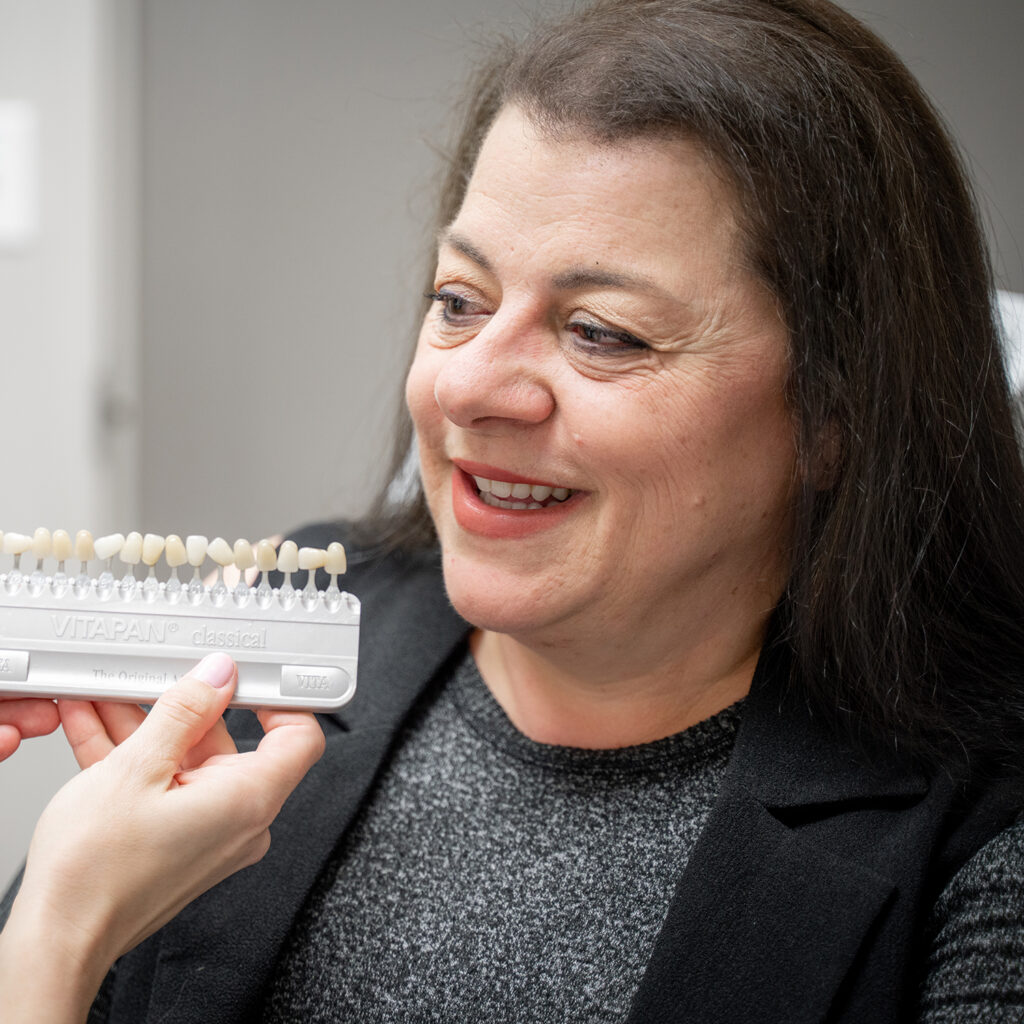
Follow-Up Care
After your reline, we schedule a follow-up appointment to check for any needed adjustments. Minor modifications may be necessary as you adapt to the newly relined dentures. Our team remains available to address any concerns that arise after your reline procedure.
We also provide detailed care instructions for your relined dentures. Proper cleaning and maintenance help extend the life of your reline and protect your oral health.
Signs You Need a Denture Reline
Pay attention to these warning signs that indicate your dentures need relining:
- Your dentures feel loose or shift when you eat or speak.
- You notice new sore spots or general discomfort when wearing your dentures.
- Your dentures make clicking sounds during normal use.
- You need to use more adhesive than before to keep your dentures in place.
- Your face appears more sunken around the mouth, indicating bone loss under your dentures.
- You experience changes in your speech pattern or difficulty pronouncing certain words.
- It has been more than two years since your last reline or denture adjustment.
Early intervention with a denture reline prevents more serious complications and extends the usable life of your dentures.
Benefits of Regular Denture Relines
Improved Comfort
Well-fitted dentures feel more natural in your mouth. Regular relines eliminate painful pressure points and reduce gum irritation. This improved comfort allows you to wear your dentures longer without discomfort.
Many patients report that after a reline, they no longer experience the end-of-day soreness that previously made wearing dentures challenging. This enhanced comfort improves overall quality of life. A skilled dentist can ensure your relines provide maximum comfort for your specific mouth structure.
Better Function
Properly fitted dentures stay in place during speaking and eating. This stability improves your ability to chew food thoroughly and speak clearly. Better chewing leads to improved digestion and nutrition, while clear speech enhances social confidence.
The proper alignment achieved through regular relines also helps maintain a natural bite pattern. This correct alignment prevents jaw pain and related headaches that can occur with poorly fitted dentures.
Extended Denture Life
Regular relines help preserve your dentures by ensuring proper weight distribution and preventing warping. When dentures fit correctly, you apply less force while eating and speaking. This reduced pressure helps your dentures last longer before needing replacement.
At Shreve Denture Clinic, we help patients extend the life of their dentures through timely relines and proper maintenance advice.
Preserved Facial Structure
Well-fitting dentures provide crucial support for facial muscles. This support helps maintain your natural facial contours and prevents the sunken appearance that often occurs with bone loss. Regular relines ensure your dentures continue to provide this important structural support as your mouth changes.
The proper support from well-fitted dentures helps you maintain a more youthful appearance and natural smile. This benefit extends beyond function to affect overall self-confidence.
Maintaining Your Relined Dentures
Proper care extends the life of your denture reline. Clean your dentures daily with a soft brush and denture cleaner. Avoid abrasive cleaners that can damage the reline material. Remove your dentures at night to give your gum tissue time to rest and recover.
Schedule regular check-ups with your dentist or denturist, even when you’re not experiencing problems. These preventive visits help identify and address minor issues before they require more extensive treatment. At Shreve Denture Clinic, we recommend professional denture cleanings every six months to maintain optimal condition. For patients with dental implants that support dentures, special cleaning techniques and more frequent check-ups may be recommended.
Alternative Options: Dental Implants and Dentures
For patients seeking more permanent solutions, dental implants offer an excellent alternative to traditional dentures. Dental implants provide a stable foundation for replacement teeth that look, feel, and function like natural teeth. At Shreve Denture Clinic, our dentist can evaluate if you’re a good candidate for dental implants and discuss how they might benefit your specific situation.
Dental implants can support various types of dentures, from single tooth replacements to full-arch solutions. These implant-supported dentures eliminate many common problems associated with traditional dentures, including slipping, clicking, and bone loss. Unlike conventional dentures, implant-supported options stimulate the jawbone, helping to preserve bone structure and facial contours over time.
Contact Shreve for your next Reline:
Denture relines represent an essential aspect of ongoing denture care. They address the natural changes in your mouth that occur over time, ensuring your dentures continue to fit comfortably and function properly. By understanding the importance of regular relines and recognizing the signs that indicate when a reline is needed, you can maintain your oral health and quality of life.

At Shreve Denture Clinic in Leamington, we provide expert denture reline services with a focus on patient comfort and convenience. Our dentist and experienced team ensure optimal results with our same-day service that minimizes disruption to your routine. Contact us today for a free consultation to determine if your dentures would benefit from a professional reline.
